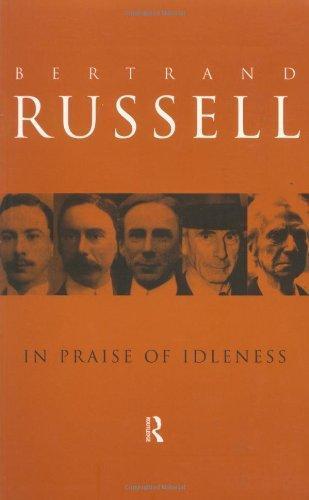"Poor Economics", indeed. Reducing every single human behaviour, from individual charitable donations to government policy, down to a dollar figure gets exhausting by the end of this book. It's as if economists feel the need to prop up the pseudoscience of Economics by scrubbing what little compassion or humanity they might be tempted to include in a book like this. Instead, the health and well-being of families in "developing countries" is reduced to a variable in RoI calculations.
I commend the authors for attempting to step outside the artificial western left/right political spectrum but it's safe to say this is a failed attempt. Instead, the writing waffles. On one side, it appeals to socialist ideals with "facts" presented without a single mention of what variables were actually controlled for in their pseudo-experiments, if any. On the other side, the language is clearly targeted at a dying generation of right-wing ideologues …
Reviews and Comments
I struggle to read fiction.
This link opens in a pop-up window
Steven Deobald reviewed Poor Economics by Abhijit V. Banerjee
Review of 'Poor Economics' on 'Goodreads'
1 star
"Poor Economics", indeed. Reducing every single human behaviour, from individual charitable donations to government policy, down to a dollar figure gets exhausting by the end of this book. It's as if economists feel the need to prop up the pseudoscience of Economics by scrubbing what little compassion or humanity they might be tempted to include in a book like this. Instead, the health and well-being of families in "developing countries" is reduced to a variable in RoI calculations.
I commend the authors for attempting to step outside the artificial western left/right political spectrum but it's safe to say this is a failed attempt. Instead, the writing waffles. On one side, it appeals to socialist ideals with "facts" presented without a single mention of what variables were actually controlled for in their pseudo-experiments, if any. On the other side, the language is clearly targeted at a dying generation of right-wing ideologues the authors try to sway with a few specious graphs and a tone imbued with a horrifying objectivity. "Poverty" is never identified as a state of being entirely applicable to every human on the planet. Banerjee and Duflo never even approach the idea that this "poverty" is something which might afflict them tomorrow. The language is consistently the "us-and-them" terminology of "developing nations" and "poor communities". Even the World Bank doesn't use language like this anymore. The authors spend an inordinate amount of time making the case that "the poor" are not actually just lazy and incompetent. Believe it or not, dear reader, the poor may not actually deserve their fate! Yes. Enlightening.
At a high level, it's really hard to say what the take-aways from this book even are. "Economics: Yes, it is still complicated an counter-intuitive"? "Randomized Controlled Trials: At least they're better than 20th Century Economics Witchcraft"? The last chapter is literally entitled "In place of a sweeping conclusion" and the entire book feels this way. A Radical Rethinking of the Way to Fight Global Poverty, you say? Can't say I found this radical rethinking anywhere in here. It's a peculiar collection of haphazard pseudo-scientific evidence -- a long, dry summary of whitepapers. A boring book would have been preferable, though, and I wish the authors had limited themselves to summarizing whitepapers.
It's always especially frustrating to read a book which I largely agree with only to be disgusted by the patronizing tone of the author(s). This was a frustrating read and I don't recommend it.
Steven Deobald rated Coders at Work: 4 stars
Steven Deobald reviewed Bashai Tudu by Mahasweta Devi
Review of 'Bashai Tudu' on 'Goodreads'
5 stars
4.5 stars. Although not as spellbinding as “Romtha”, I feel like “Operation? Bashai Tudu” is a real window into the the complexities of the systemic oppression of modern India. Mahashweta Devi’s dry sense of humour comes through this translation and I found myself laughing out loud over my morning coffee at some of her linguistic juxtapositions. In a twenty-first century full of oversimplified political discourse, this book is as relevant as ever. In an India full of deep, systematic, and structural caste oppression it colours the ongoing discourse for those of us who will forever sit on the outside.
The novelette and accompanying short story, “Draupadi”, make heavy use of puns, layers of Bengali dialects, and plays on the Bengali/English intersection of urban Bengal in the 1970s. Kudos to the translators for making this work at all, much less making it accessible and entertaining... but I understand I’m missing 90% …
4.5 stars. Although not as spellbinding as “Romtha”, I feel like “Operation? Bashai Tudu” is a real window into the the complexities of the systemic oppression of modern India. Mahashweta Devi’s dry sense of humour comes through this translation and I found myself laughing out loud over my morning coffee at some of her linguistic juxtapositions. In a twenty-first century full of oversimplified political discourse, this book is as relevant as ever. In an India full of deep, systematic, and structural caste oppression it colours the ongoing discourse for those of us who will forever sit on the outside.
The novelette and accompanying short story, “Draupadi”, make heavy use of puns, layers of Bengali dialects, and plays on the Bengali/English intersection of urban Bengal in the 1970s. Kudos to the translators for making this work at all, much less making it accessible and entertaining... but I understand I’m missing 90% of the book without reading it in the original Bengali. Even so, it’s wonderful.
Steven Deobald rated Waiting for Godot: 3 stars
Steven Deobald rated Java concurrency in practice: 5 stars

Java concurrency in practice by Brian Goetz, Tim Peierls, Joshua Bloch, and 3 others
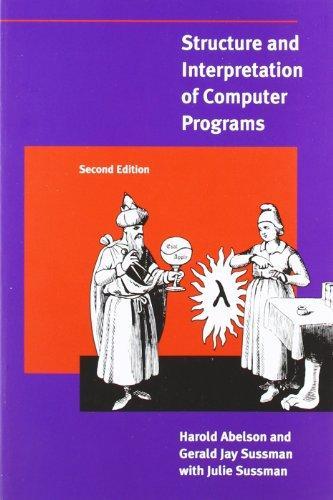
Structure and Interpretation of Computer Programs - 2nd Edition by Hal Abelson, Gerald Jay Sussman
Structure and Interpretation of Computer Programs (SICP) is a computer science textbook by Massachusetts Institute of Technology professors Harold Abelson …
Steven Deobald reviewed Illusions by Richard Bach
Review of 'Illusions' on 'Goodreads'
1 star
Maybe one and a half stars?
This avoids the painfully masturbatory self-indulgence of The Alchemist but I wouldn't say it's a great deal better for being direct. The best parts of this book were the author talking about airplane mechanics.
Steven Deobald reviewed Hackers by Steven Levy
Review of 'Hackers' on 'Goodreads'
5 stars
I really, really enjoyed this book. Levy tells the story in a way that flows from one brief era of the early computer age to the next. There is still so much of those early days which defines how we build and use computers in the 21st century. This book should be required reading for any programmer but I honestly think anyone would enjoy it.
Philosophically, there is so much bound up in the Hacker Ethic that I have never heard a hacker (of any sort) express it coherently. When RMS presents it, it's some sort of Ultra-Liberal flavour of Americana-Soaked Super Freedom. ESR is probably worse. Modern hackers miss the gossamer nature of the ideal and stomp straight into implementations. Old hackers conflate a Hands-On Imperative with DIY. Somehow, Levy captures everything I have ever wanted to express about the Hacker Ethic the way that Harari expresses the concept …
I really, really enjoyed this book. Levy tells the story in a way that flows from one brief era of the early computer age to the next. There is still so much of those early days which defines how we build and use computers in the 21st century. This book should be required reading for any programmer but I honestly think anyone would enjoy it.
Philosophically, there is so much bound up in the Hacker Ethic that I have never heard a hacker (of any sort) express it coherently. When RMS presents it, it's some sort of Ultra-Liberal flavour of Americana-Soaked Super Freedom. ESR is probably worse. Modern hackers miss the gossamer nature of the ideal and stomp straight into implementations. Old hackers conflate a Hands-On Imperative with DIY. Somehow, Levy captures everything I have ever wanted to express about the Hacker Ethic the way that Harari expresses the concept of Collective Imagination/Hallucination. These ideas do not subscribe the ephemeral political spectra and they don't fit cleanly into the ideas the reader holds before reading the first page. Neither author is arguing for or against these ideas -- they're just presenting them. The execution is so brilliant I can't believe friends and colleagues haven't been shoving this book down my throat for decades.
Review of 'Things We Found During the Autopsy [Paperback] [Jan 01, 2017] Kuzhali Manickavel' on 'Goodreads'
5 stars
"What's India like?" they'll ask as myriad images flip through your head, searching for themes or images or adjectives that might satisfy a question which demands a please-less-than-one-short-paragraph answer despite standing as inquiry to a three thousand year old civilization spanning three million square kilometres crammed full, at present, with over one point three billion humans.
I have so repeatedly failed to describe India in any meaningful way to friends overseas that I've largely stopped trying. Until now, I couldn't even point to a book that might help them get an idea. But this is the book. This book is India.
This book is also Canada. It's nostalgic in strange ways that I'm not sure were intentional... images mirror Shel Silverstein books of my childhood and phrases like "lint-covered cinnamon hearts" simply mirror my childhood directly.
I am very curious which of these paradoxical images will strike you as you …
"What's India like?" they'll ask as myriad images flip through your head, searching for themes or images or adjectives that might satisfy a question which demands a please-less-than-one-short-paragraph answer despite standing as inquiry to a three thousand year old civilization spanning three million square kilometres crammed full, at present, with over one point three billion humans.
I have so repeatedly failed to describe India in any meaningful way to friends overseas that I've largely stopped trying. Until now, I couldn't even point to a book that might help them get an idea. But this is the book. This book is India.
This book is also Canada. It's nostalgic in strange ways that I'm not sure were intentional... images mirror Shel Silverstein books of my childhood and phrases like "lint-covered cinnamon hearts" simply mirror my childhood directly.
I am very curious which of these paradoxical images will strike you as you read the book. Strike with that feeling in your chest that repeatedly made me say out loud "This! I can't believe she thought to write THIS down!" Lint-covered cinnamon hearts, indeed. <3
Review of 'In Praise of Idleness and Other Essays' on 'Goodreads'
5 stars
The title essay is not necessarily all that convincing but the other essays scrape together a cohesive image for an age beyond the industrial revolution. Re-imagining our own history through Russell's eyes is informative. Imagining a reframe of the present in terms of our potential future can actually change the way we live now. I rarely read a book that changes my thought processes in this way but I read Russell's essays almost a decade ago and the ideas are still with me.
Steven Deobald reviewed The Religion War by Scott Adams
Steven Deobald reviewed God's Debris by Scott Adams
Steven Deobald rated Where the Sidewalk Ends: 4 stars

Where the Sidewalk Ends by Shel Silverstein
Where the Sidewalk Ends is a 1974 children's poetry collection written and illustrated by Shel Silverstein. It was published by …
Steven Deobald reviewed On writers and writing by Margaret Atwood
Review of 'On writers and writing' on 'Goodreads'
4 stars
This won't be for everyone. A long stream of consciousness (with references) that Ankur accurately described as "navel-gazing", this will prove to be an enjoyable read only for those who've found themselves asking the same questions Atwood asks herself.
I enjoyed it. I read it slowly, over a few months, and found that every time I picked it up I was motivated to pick up a piece of my own writing.


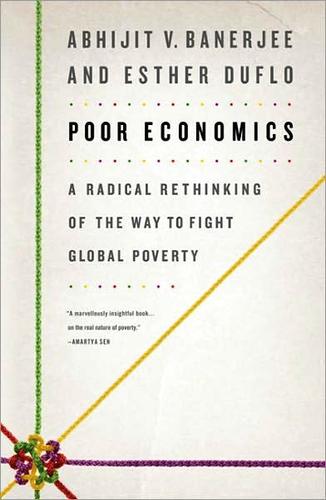
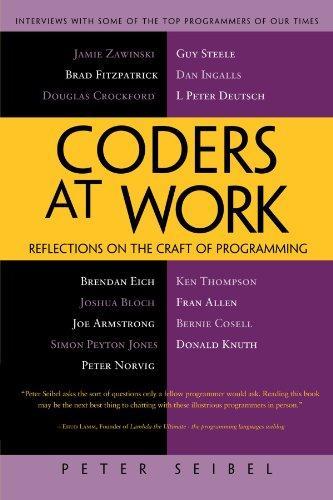



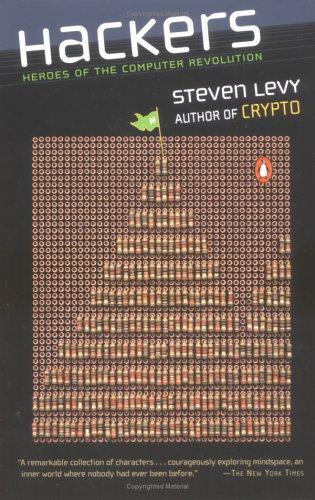
![Kuzhali Manickavel: Things We Found During the Autopsy [Paperback] [Jan 01, 2017] Kuzhali Manickavel (Paperback, 2014, Blaft Publications)](/images/covers/e1ad6301-fcd0-40b8-85f1-4eafb600e542.jpeg)
